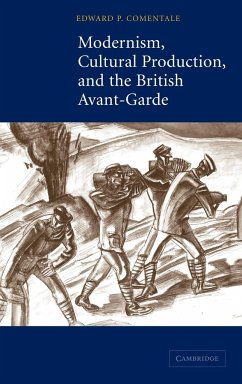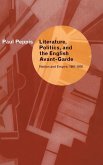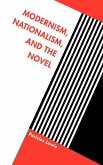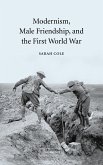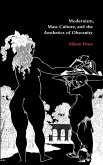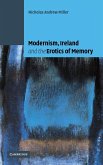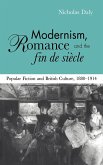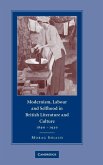Edward Comentale exposes the links between art, literature and early twentieth-century capitalism. Comentale shows how apparently progressive avant-garde movements in their celebration of individualism, competition and labor worked hand in hand with a market defined by a monstrous increase in production and consumption. Most importantly, he unearths an alternative modernist practice based on a special kind of production that both critiques and challenges economic production at large. He goes on to argue that the British avant-garde, which has often been criticized for its emphasis on classical stasis and restraint, sought to halt this market activity and to think of less destructive ways of communal belonging. Comentale provides an interdisciplinary study examining art and sculpture as well as writing by Virginia Woolf, T. S. Eliot and H. D. among others, in the light of psychoanalytic, economic and political theory. This book will be of interest to scholars of literary and cultural modernism.
Table of contents:
Illustrations; Acknowledgments; Introduction: On the nature of being otherwise; Part I. Critique: 1. Fascism and/or liberalism: the avant-garde and modern capital; 2. 'No end, but addition': T. S. Eliot and the tragic economy of high modernism; Part II. Construction: 3. The modern temple: T. E. Hulme and the construction of classicism; 4. 'A fairly horrible business': labor, World War I, and the production of modern art; 5. Thesmophoria: suffragettes, sympathetic magic, and feminist classicism.
Comentale exposes the links between art, literature and early twentieth-century capitalism. He examines art and sculpture as well as writing by Virginia Woolf, T. S. Eliot and H. D. among others, in the light of psychoanalytic, economic and political theory. This book will be of interest to all scholars of modernism.
Edward Comentale exposes the links between art, literature and early twentieth-century capitalism.
Table of contents:
Illustrations; Acknowledgments; Introduction: On the nature of being otherwise; Part I. Critique: 1. Fascism and/or liberalism: the avant-garde and modern capital; 2. 'No end, but addition': T. S. Eliot and the tragic economy of high modernism; Part II. Construction: 3. The modern temple: T. E. Hulme and the construction of classicism; 4. 'A fairly horrible business': labor, World War I, and the production of modern art; 5. Thesmophoria: suffragettes, sympathetic magic, and feminist classicism.
Comentale exposes the links between art, literature and early twentieth-century capitalism. He examines art and sculpture as well as writing by Virginia Woolf, T. S. Eliot and H. D. among others, in the light of psychoanalytic, economic and political theory. This book will be of interest to all scholars of modernism.
Edward Comentale exposes the links between art, literature and early twentieth-century capitalism.

